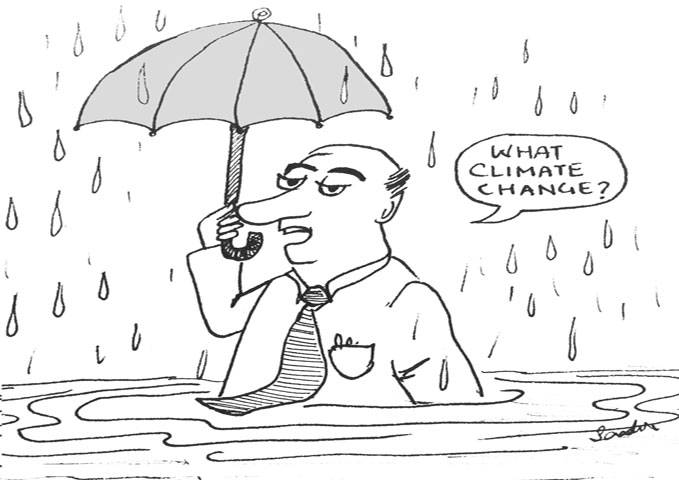Pakistan has suffered the worst ever heat wave in June 2015, mostly affecting Sindh, Southern Punjab and Baluchistan. Some cities reached highest recorded temperatures of around 49 °C resulting in deaths of more than 1400 people. A larger number of deaths led to a state of emergency, despair and chaos in the city. A state of emergency was called and even a public holiday was announced.
It is sorry to note that while the people were dying in Karachi our federal government seemed busy in blaming the provincial government and K-electricity. Instead of taking the responsibility to give relief the government asked K-Electric to effectively address the utilisation of generation capacity and licensing conditions.
K-electric clarified that the government owes more than $1 billion in unpaid bills making it difficult for them to continue supplying electricity. I would like to ask why the government departments do not pay electric bills. The role of Provincial Disaster Management Authority (PDMA) was disappointing in social welfare and relief operations in Karachi. Little effort was made to get money from Zakat, Baitul Mal and local government in setting up camps to arrange for ambulances on time.
The only positive role was played by the military in distributing aid in response to natural disaster. Now people are more alert about the climate change and its deep impact. Understanding the factors behind this climate change are important which include global warming, deforestation, rapid urbanisation and increased emission of CO2 in the atmosphere. There are certain remedial measures which need taken to avoid such disasters. There must be public awareness and about heat stroke and how it can be prevented. People must increase intake of water and fluids
AYMEN IJAZ,
Islamabad, July 10.
Friday, April 19, 2024
Dealing with crisis

Punjab’s price control initiative: A welcome step
12:33 PM | April 19, 2024
PTI founder’s interim bail extended in three cases
12:00 PM | April 19, 2024
US encourages Pakistan to prioritise and expand economic reforms
11:42 AM | April 19, 2024
Hafiz Naeem takes oath as JI chief, announces anti-government movement
11:39 AM | April 19, 2024
Faizabad commission report leaked, it should be made public now, suggests Abbasi
11:11 AM | April 19, 2024
A Tense Neighbourhood
April 19, 2024
Dubai Underwater
April 19, 2024
X Debate Continues
April 19, 2024
Hepatitis Challenge
April 18, 2024
IMF Predictions
April 18, 2024
Kite tragedy
April 19, 2024
Discipline dilemma
April 19, 2024
Urgent plea
April 19, 2024
Justice denied
April 18, 2024
AI dilemmas unveiled
April 18, 2024
ePaper - Nawaiwaqt
Advertisement
Nawaiwaqt Group | Copyright © 2024





